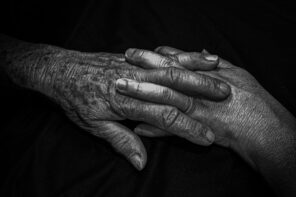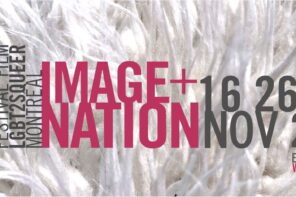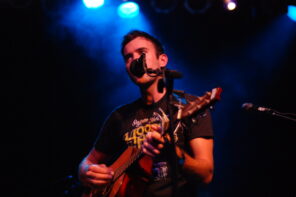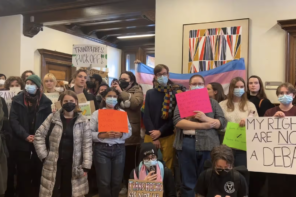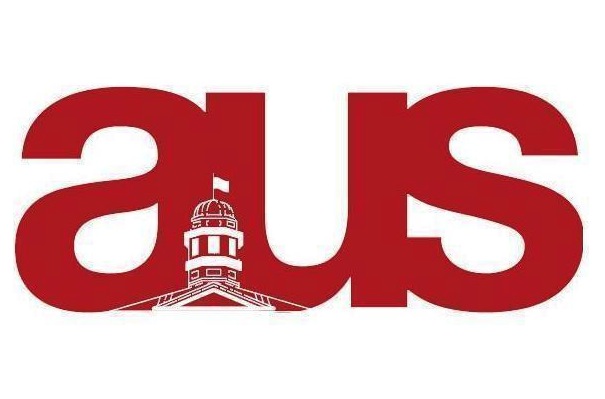This October was McGill’s second Queer History Month. There have been several events discussing new authors and recent literary works in the community, such as Celebrating 2spirit Identity and Sara Ahmed’s lecture. However, I thought it would be interesting to look back on the community, and see if older queer stories can stand the test of time.
It was thanks to Queer McGill’s library that I was able to get my hands on John Preston’s “Stolen Moments”, the fourth book in the Alex Kane Series.
The first thing that stunned me was the boldness of this work. Published in 1985 by Alyson Publications, the book is anything but discreet: the back boldly proclaims “Who says heroes can’t be gay?”, immediately letting potential readers know what they are getting into. A similarly bold description applies to the protagonist, with Alex Kane seen as a hero whose “only goal is justice for gay people” and whose “only weakness is for other men.”
The first thing that stunned me was the boldness of this work.
Kane has a rather typical action hero backstory, fighting to right the injustices that resulted in his lover being murdered. He is described both by himself and by others as a “fanatic”, single-minded in his quest for equality. As soon as he finishes helping gay men in one location, he moves on to his next mission, destroying homophobes with a spectacular level of violence characteristic of 80s pulp.
Most of the issues Kane faces in this book are very much grounded in the time period. For instance, he fights against a newspaper that is “f*g-baiting”, a phenomenon where newspapers would reveal the identities of gay men without their consent. At the height of the AIDS crisis, the social stigma associated with being gay would be enough to destroy a man’s life; this was literally putting men in physical danger.
Of course, Kane would not stand for this, so he went to Houston to deal with the Houston Clarion, the newspaper in question. Hand-in-hand with Danny, a new lover who is as passionate about the cause as he is, they link up with local gay organizations and set about working to protect the members of the community, especially those living in the “gay area” of town.
An aspect I was not expecting—one which probably led to the book being classified as erotica on Wikipedia—was the amount of sexual content. Even outside of the sex scenes, characters shamelessly check each other out and comment on their attractive features. Both “butches” and “queens” are described with a particular focus on their virility and masculinity.
Most of the issues Kane faces in this book are very much grounded in the time period.
However, the more I read, the more I realized that this sexual element seems to be a part of this book’s activism. The shameless way men express their attraction to each other and the depiction of happy lovers – in monogamous relationships and otherwise – works to normalize homosexual attraction as normal and desirable. That kind of positivity and acceptance could mean a lot to gay youth, especially during such a turbulent time.
What touched me most was the strong sense of community. Even as the conservative head of the newspaper screams that he is doing this to “cleanse” the “good Christian community” of deviants, there is a strong image of a gay community coming together and defending itself. Kane, an outsider at the start of the novel, quickly makes friends within Houston’s gay community and does his best to keep everyone safe.
One of these friends is Cecil: a black medical student who articulates some of the issues within the community, and how being both gay and black impacts his life. I really appreciated details like this; even if Preston is writing about the issues the gay community is facing and how they should stand together, he is not afraid to show that there are still problems like racism in the LGBTQ+ community. Kane shows himself to be a strong ally of Cecil, defending him against racist gay men on multiple occasions. To quote Juan, another character who is saved by Kane, “If your revolution doesn’t include me, it can go to hell!”
In the 80s, it was necessary to self-advocate, to stand up against a society putting pressure on queer people.
This strong gay community does not exist in isolation. At the opening of the book, there is a page dedicated to the National Gay and Lesbian Task Force, a charity that worked to support action and activism in favour of the LGBTQ+ community. Preston encourages readers to become members of it, stating that “Alex Kane would be proud of you.”
In the 80s, it was necessary to self-advocate, to stand up against a society putting pressure on queer people. The need for activism remains strong today. Though marriage equality has been achieved in Canada, there are still many ways that LGBTQ+ people are discriminated against, such as bullying and hate crimes.
A surprising amount of elements in this book still ring true today. Within the fight against oppression, the emphasis on standing strong with communities against conservative authorities and the importance of intersectionality within social movements are still being discussed today.



